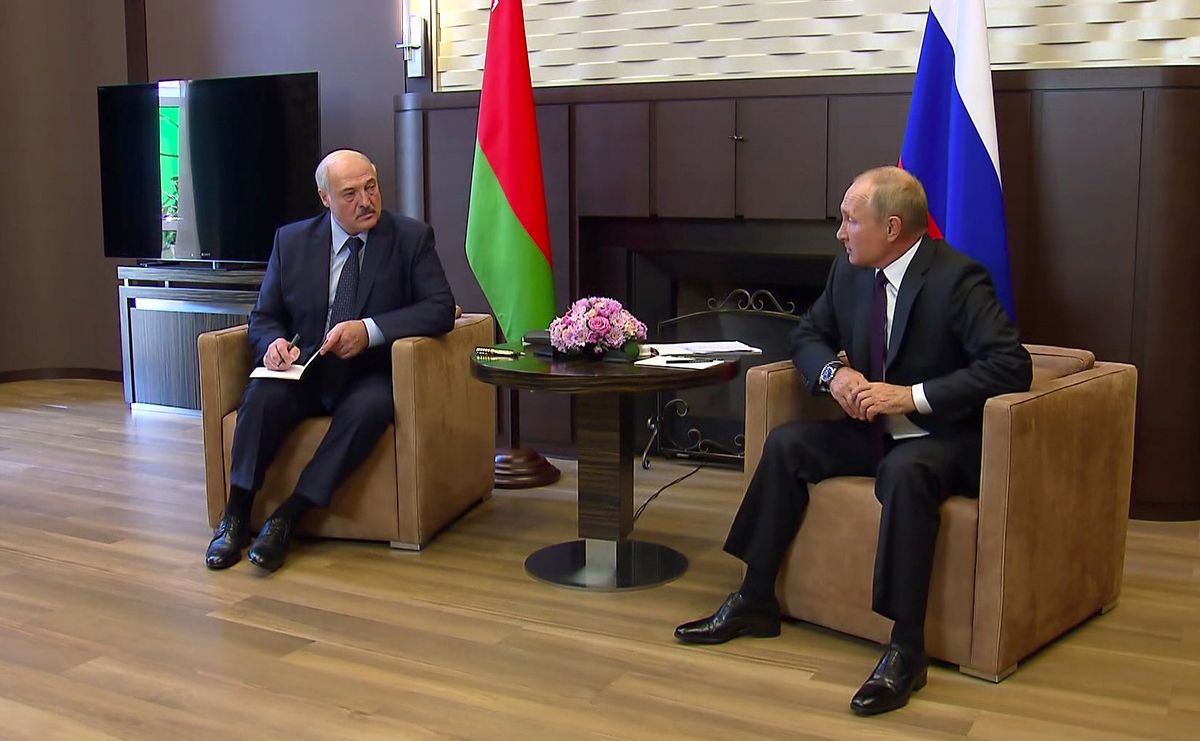Putin's strings attached: As protesters continued to throng the streets of Minsk, Belarus' strongman Alexander Lukashenko traveled to Moscow earlier this week to seek support from longtime frenemy Vladimir Putin. During a meeting in which body language told much of the story — the burly Lukashenko uncomfortably beseeching Putin who sat stone-faced in a dread manspread — the Russian President said he'd throw his Belarusian counterpart a $1.5 billion emergency loan. But he also pressured Lukashenko to open the way to fresh elections. That's something that the Belarusian president has resisted so far — after all, the current unrest came in response to his rigging of the August election, and it's hardly clear that he would win a redo. That may be precisely the point, from Putin's perspective. He has disliked Lukashenko for years, but the last thing he wants is for street protesters to depose him, which might give Russians some crazy ideas of their own. But a reasonably fair vote might be just the way to get rid of Lukashenko. What's more, the Belarusian opposition has been careful not to alienate Russia, meaning a change of power wouldn't necessarily hurt the Kremlin's interests. What will Lukashenko do? $1.5 billion can buy a lot of vodka and saunas.
Final verdict on Ivorian election: Ivory Coast President Alassane Ouattara can run for a third term despite a constitutional two-term limit, the country's top court has decided. The ruling also banned former President Laurent Gbagbo from seeking the presidency in next month's election, and cleared the way for Henri Konan Bedie — another former president and coup leader — to be the main opposition candidate against Outtara. Nearly 80 people have died in violent street protests in the Ivory Coast since Ouattara announced he would run again after his handpicked successor, Amadou Gon Coulibaly, suddenly died in July while serving as prime minister. Outtara has been in office since 2011, when he took power following a brief yet bloody civil war that erupted after his predecessor Gbagbo refused to accept an election result. Whoever wins, expect more political instability in Francophone West Africa's largest economy.
Asian recession for 2020: Developing economies in Asia and the Pacific (basically all except Australia, Japan, New Zealand, and South Korea) will, as a group, experience a recession this year for the first time since the early 1960s, according to the latest update from the Asian Development Bank. ADB projects that the regional economy will contract 0.7 percent in 2020 and grow again 6.8 percent next year, confirming that the region's economic recovery from the coronavirus pandemic will be more gradual (in the form of an L or swoosh) rather than what wonks refer to as the more optimistic "V-shaped recovery." Some economies will perform better than others though: China's is expected to grow by 1.8 percent in 2020, while India's will decline by 9 percent, and most Asian economies that are highly reliant on tourism revenues — such as the Philippines and Thailand — will suffer double-digit declines. Right now, ADB views a prolonged pandemic as the biggest risk for developing Asia's economic recovery from COVID-19, although the bank also says to watch the economic fallout of the US-China rivalry over technology and trade.






